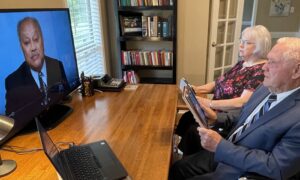Bro Splane briefly talked about the news about the magazines being reduced to 16 pages, he said that we had probably concluded that this was a way to cut back on spending, but he said that this was not the governing body’s reason for this decision.
He said that when the Awake went from two editions a month to just one, for a while the distribution numbers were down, but to their amazement before long the distribution numbers for the Awake were up to the same figures as when there were 2 issues a month.
The same happened when the WT was reduced to one per month. They realise that now that the magazines are smaller, there will be more opportunity for them to be translated into more languages, so they feel that they will end up actually printing more than they do now.
Do you believe that it was not to save money?
Concerning the letter read at the meeting after the special talk:
One of the phrases that really irritates is when people say that ‘we will be throwing money in the streets’ as people think money will be worthless. That is just their reaction to their not wanting to deal with the economic system by apply a scripture. That is simply their frustration with this system. But that fact is that we are subject to money, like it or not. And over the past 23 years we have been making changes.
Back in 1989 we went to the donation arrangement so that we would not be burdened by any tax issues, sales, revenue, etc. However the revenue stream became uncertain as more of the burden came upon the publishers. Sure, sometimes we heard of big donors as there was no price set for the literature, but much literature was also wasted since it was considered free.
In 1990 there was that talk on living within your financial means at the District Convention. That also applied to Bethel and the congregations.
In 2008 we went from semi-monthly Awake to monthly. That cut the costs of that magazine in half.
Buildings in Brooklyn have been sold.
In 2009 the Book Study was consolidated with the other meetings saving money from the use of the Hall (heat and A/C, electricity) from that meeting and allowing more congregations to use a Kingdom Hall rather than build and from travel to the meeting.
Literature has been going to paperback and smaller.
In 2009 they started announcing that recordings of assemblies are for personal use and not to be distributed. The reason being that if people can obtain assemblies, they won’t feel the need to attend or to arrange their schedules to attend and if they don’t attend, they won’t feel as motivated to donate. Their new business model is not about literature but information.
In 2010 the Watchtower split to Public and Study copy. Instead of printing 20 million of each, the study copy is only for the ones at the meetings. Only around 11 million would be needed, cutting printing in half.
Publications have been put on the internet so people can read them without paper copies to save money by not wearing out their books.
Now in 2013, they are cutting the public Watchtower and Awake in half in page count, from 8 sheets to 4 sheets.
Like it or not, we are subject to the monetary needs of this system and have been pushed by it. All of these cutbacks in the last 5 years.
Look at the results of this. We often hear that we should read all of the magazines and people have a hard time finding the time to do that. Now it will be easier.
Another phrase that I hear is that is annoying and misdirected is: “Do you know more than the governing body?” What does knowing have to do with anything? There are forces greater than them in play. The congregations and the Watchtower Society is a business. Not for profit corporations. Of course the objective is to make profit but that status means that the owners or shareholders do not get the profit. Every business tries to make profit – Revenue greater than expenses, or they can’t continue.
Many of these changes have been coming in the past five years from the financial collapse. Businesses that try to survive reduce expenses knowing that increasing revenue is difficult. They reduce advertising, but many say that advertising should not be cut. Who are the marketers here? It is us. But the problem is that our advertising and marketing increases have not resulted in revenue increases.
I have stated that I disliked how we keep hearing about people quitting college or university to pioneer or quitting jobs to pioneer or because it causes them to miss meetings or assemblies. And people criticized me saying that I am criticizing the Faithful Slave. Well, they are subject to this system and are not above it. We have this feeling of volume, as in volume of publishers is where it grows. But as the above showed, it has not been happening. Increases in Pioneers and Auxiliary pioneers whether 30 or 50 hours, increases the marketing but these publishers can barely support themselves and can’t maintain the organization. Drastic cuts have been made. We hear that people shouldn’t miss meetings because of work or people quit jobs because they have to work and miss meetings. Infact in that Watchtower of the Special
talk, it mentioned people who miss meetings for work. I guess that reasoning is that a bird in the hand is worth more than 2 in the bush. One dollar contributed from someone who will not
miss meetings for work is more likely than $10 from someone who makes more but misses meetings. But it hasn’t added up or there wouldn’t have been these changes.
Also another expression is:”If we need it, Jehovah will provide it through the organization” and vice versa. So those parts of the magazines that won’t be there aren’t
needed? The ones for the youth and other things will be on the web,but do people read things on the web like on the paper? Now that they are told that it will be there.
Will it be in downloadable pdf or other Kindle or ipad readable formats?
This really changes the door to door and other preaching work. People aren’t going to be focusing on placing magazines because magazines are like brochures with different topics.
Considering another aspect of the finances of the preaching. The memorial invitations and convention invitations need to be printed with times and addresses. That is their marketing plan. With an average of $50 per congregation to print them , and 12,000 congregations in the USA, that amounts to $600,000 dollars on average. The Society needs to have a variable data printing system on the presses that prints them to print them as they run them; and have the congregations supply them the information as they used to do with handbills. That would cost a lot less than $600,000 to print them all.





